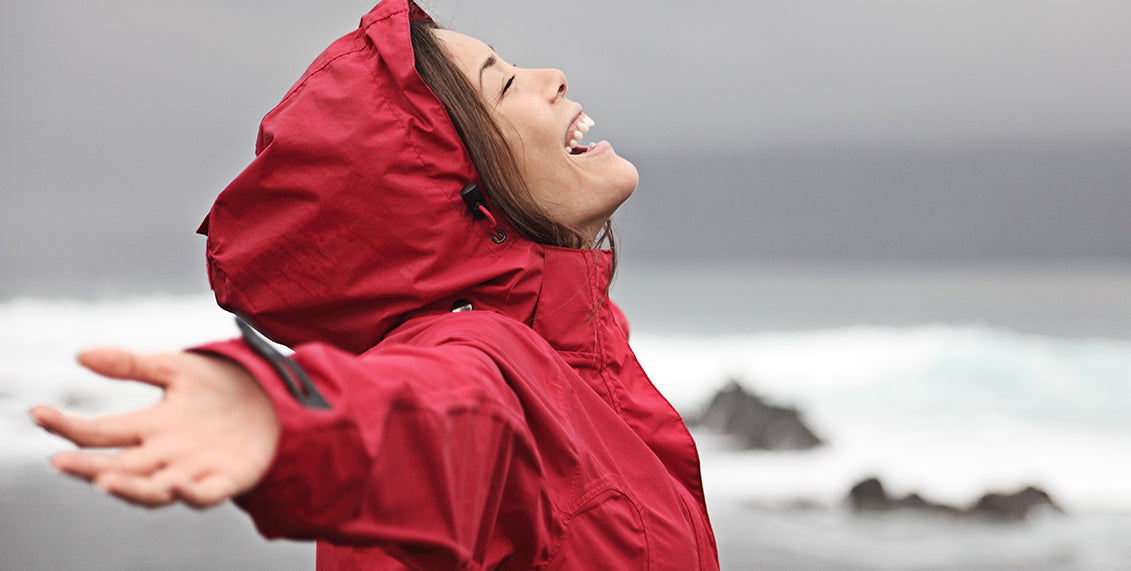How to resist the virus?

It's that time of year again: cold, wet weather and little sunlight don't inspire an irrepressible desire to go outside and even exercise. So we prefer to stay indoors, where it's warm and cozy, and indulge our cravings for something hearty or sweet. Sounds good at first. In the long run, however, our immune system also becomes a little sluggish and no longer does a good job. As a result, viruses & co. can invade our bodies unhindered and cause chaos and destruction. Our nose tries to run away and we start to sweat - the infection is there. To help us avoid this, here are some helpful tips to strengthen the immune system.
Get enough sleep
Seven to eight hours of sleep per night is recommended - while we sleep, the number of natural immune cells that our body needs to fight off bacteria and viruses increases.
Regular, moderate exercise
30 minutes of exercise in the fresh air every day, preferably endurance sports such as jogging, walking, hiking, swimming or cycling, get the circulation going, increase stress resistance and strengthen the immune system.
Relaxation
Constant stress weakens the immune system. We need moments of relaxation - and it doesn't necessarily have to be yoga or meditation. Puzzles, knitting, reading or bathing are also relaxing - it should definitely be something that allows us to calm down.
Sun and sun alternatives
Admittedly, extensive sunbathing is extremely difficult in November. However, we need the sun so that our body can produce vitamin D, which in turn strengthens the immune system. However, the intensity of radiation from October to March is too low for the body's own vitamin D production. Anyone who spends little time outdoors, works in an office during the day or works night shifts should make sure they have a sufficient supply of vitamin D. This also applies to older people, as vitamin D production decreases significantly with age.
Hygiene measures
n particular, keeping your hands clean protects you, so they should be washed thoroughly several times a day with soap for at least 30 seconds and then dried thoroughly. A hand sanitizer also provides protection when out and about. Distance also protects against the risk of infection, i.e. avoid close physical contact such as handshakes or hugs, keep a distance of one to two meters and sneeze into the crook of your arm rather than into your hands.
Ventilate regularly
Airing rooms for 5 to 10 minutes ensures a complete exchange of air; rooms with several people should be aired vigorously every two hours at the latest. Ventilation is also important for air humidity; dry heating air attacks the mucous membranes in the nose and throat.
Avoid smoking and moderate alcohol consumption
We know how harmful smoking is, and excessive alcohol consumption also damages our body and weakens our immune system. For a strong immune system, it is therefore advisable not to smoke and only drink alcohol in moderation.
Adequate fluid intake
Drinking 1.5 to 2 liters a day maintains our body's natural protective barriers. Water, unsweetened herbal and fruit teas or diluted fruit juices are ideal.
A balanced diet
A healthy and balanced diet is ideal for strengthening the immune system. With essential nutrients for the immune system, it supports the body's defenses.
What is recommended in the diet?
- Lots of fruit and vegetables, which contain important vitamins for the immune system such as vitamin A, vitamin C, vitamin B6 and folic acid.
- Cereals, pulses, nuts, meat, fish, milk and dairy products - they are good sources of vitamin D, vitamin B12, iron, copper, selenium and zinc.
- Make sure they are fresh and organic.
Food supplements
Causes for an increased nutrient requirement can include stress, old age, pregnancy, heavy physical exertion or chronic illness. If not enough vitamins and minerals are taken in through food, dietary supplements can compensate for this deficit.
In particular zinc, Vitamin D, Vitamin C, Folic acid, selenium, Vitamin B6 and B9 help to support the immune system. Medical advice should be sought before taking food supplements.




